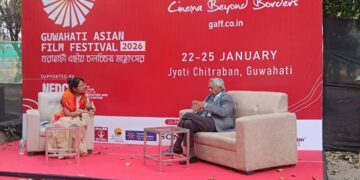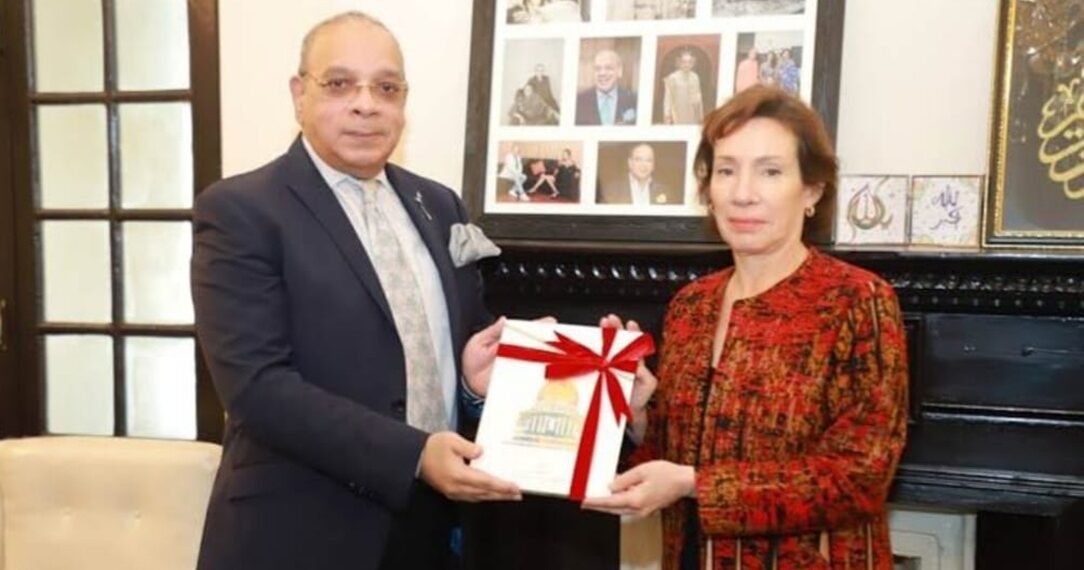Bangladesh has lost not only its independence but even the little self-respect that a supposedly free country commands. It is now being controlled and led, not by Mohammad Yunus, the so-called head of the interim government that has no accountability, but by US Chargé d’Affaires in Dhaka, Tracey Ann Jacobson.
In perhaps one of the most disgraceful episodes in Bangladesh’s history, the country’s Chief Justice, Syed Refaat Ahmed today met Jacobson at his residence on Hare Road, about 10 kms from the US embassy located in Baridhara, for this meeting, second time in less than three months.
Quite obviously, details of what transpired in the course of this 30-minute meeting were not made public, but the very fact that the country’s Chief Justice met a foreign diplomat at his official residence speaks volumes of Bangladesh’s sovereignty, independence and, more importantly, Bangladeshis’ collective self-esteem and dignity.
A former three-time ambassador, Jacobson’s appointment as Chargé d’Affaires was effected to avoid the cumbersome, laborious and uncertain process involving her confirmation as envoy by the Senate.
Since she took over on January 11 this year, Jacobson has been playing an imperious role, meddling in domestic politics and interfering in decision making. These were not questioned; not even by the Bangladesh Nationalist Party (BNP) which sees itself as a pretender to power.
This is not to say that the Yunus-led interim regime has been working like a well-oiled machine and delivering good governance.
Quite the contrary. Yunus leads an illegitimate authority that took power by means of a violent students’ agitation. What followed after August 8, 2024, was more violence, deeper and wider corruption, collective erosion of rights, a general immiserisation, economic decay and an overall social degradation that Bangladesh’s proud Bengalis are horror-struck about.
In the past Jacobson had met Army chief General Waker-uz-Zaman and Principal Staff Officer in the Armed Forces Division, Lieutenant General Kamrul Hassan.
Indeed, on May 11, four days before Gen Zaman was to fly to the US for an official visit, Lt Gen Hassan rushed to meet Jacobson at the US embassy to seek her intervention to save his job.
Earlier this week, Jacobson first met at least three National Citizens Party (NCP) leaders, followed by confabulations with National Consensus Commission Vice Chairperson Ali Riaz and Monir Haidar, Special Assistant to Yunus.
She had previously met Islami Andolan representatives. On July 21, Jacobson met senior leaders of the Jamaat-e-Islami at the party’s Moghbazar office in Dhaka.
Other American diplomats were invariably present during these meetings.
The frequent meetings between Jacobson and Bangladeshi political party leaders and state functionaries demonstrate an unusual frequency, especially at a time when there is uncertainty over when the country would go to the polls.
It is noteworthy that the current crop of American diplomats in Dhaka do not make any noises about “free and fair” election now, a trend that was rather marked when Peter D Haas was the ambassador till July 23, 2024.
The meetings also show that the Americans are in total control of all levers of the interim authority, bringing into serious question the degree of command and authority that the US diplomats exercise in Bangladesh in general and the Yunus-led interim regime in particular.
There is a long and sordid history of the US State Department’s attempts to interfere in Bangladesh’s internal affairs. In the past, several American envoys in Dhaka would, from time to time, needle or destabilise the Awami League government.
On each occasion, these attempts were nipped in the bid, but at the cost of growing animosity between the US State Department and the government of the day.
However, it was in July-August 2024 that the Americans met with successful following a well-planned operation that led to a regime change.
Since the ouster of the Sheikh Hasina government, the Yunus-led interim authority has done everything to advance the US’ bidding, be it in the wider geopolitical arena, national security or domestic politics.
Needless to say, there has not been a whimper of protest by the political parties.
The BNP did make some noises in June this year, but mysteriously pulled itself back from directly confronting Yunus after his meeting with BNP acting chairman Tarique Rahman. Ordinary Bangladeshis, however, were kept in the dark.
That a deal was struck was obvious. At what cost is a question that is open to imagination. It now appears that the BNP’s politics has become banal.
ALSO READ: Assam government assigns ministers, officials for Independence Day flag hoisting
Now that the Awami League’s political activities remain banned, the BNP might be under the impression that it will romp home to victory whenever elections are held in Bangladesh, but it does not realise that the ground has begun to slip and it might not be in a comfortable electoral position six months from now. Bangladesh’s political sand shifts unexpectedly and quickly.
The same reasons might apply to the Americans who strut around Bangladesh’s political landscape imperiously.
The Americans have extracted on many fronts – they have their own stooge in National Security Adviser Khalilur Rahman, their geopolitical sway in the region is like never before and their exactions on the economic and commercial fronts has only just begun.
Bangladesh’s neck has been wrung, and the costs that it will have to bear on the political and security fronts would be immense.















